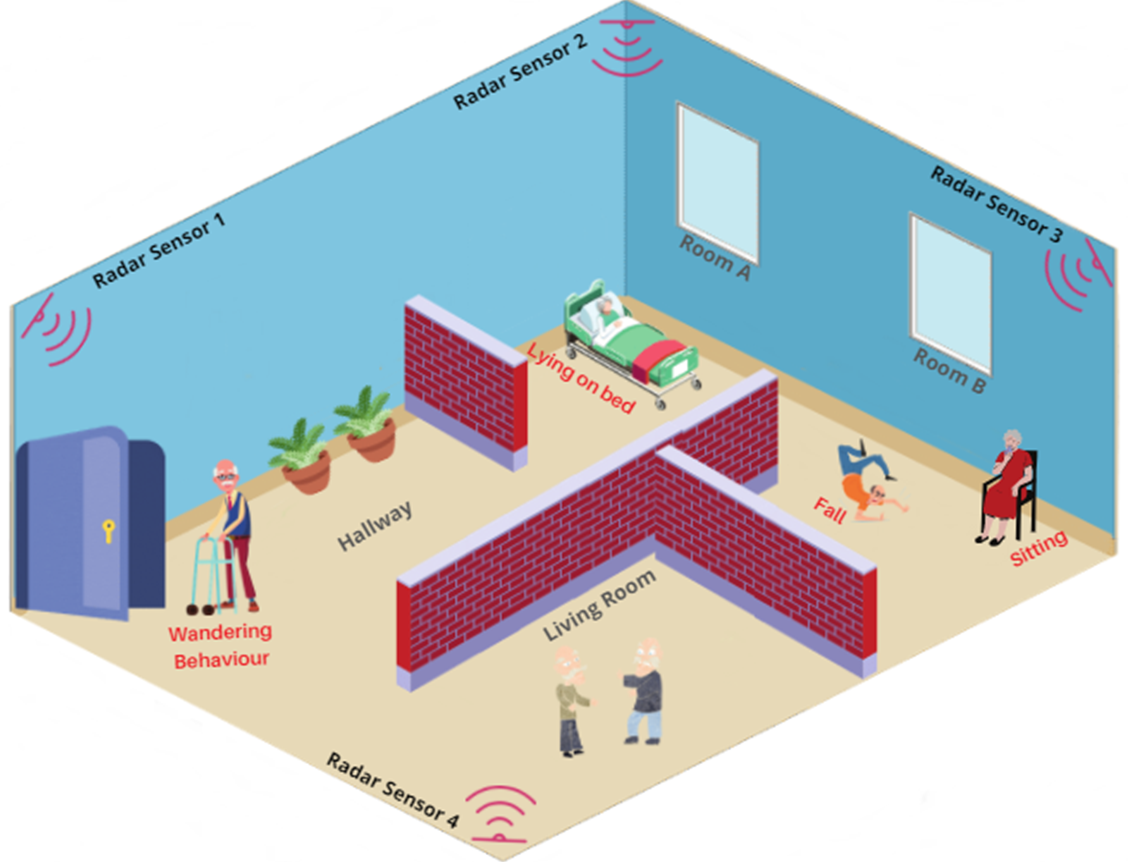Multistatic RADAR Sensing for Activity Monitoring of Daily Living Simultaneously in Multiple Subjects
Funder
Engineering and Physical Sciences Research Council (EPSRC) 
Value to Coventry University
£334,877
Duration
29 January 2023 to 28 July 2025
Project Overview
The primary aim of this project is to develop and evaluate a multistatic (multiple RADAR sensor nodes) RADAR sensing system to monitor the ADL [Activities of Daily Living] including but not limited to walking, sitting down, standing up, eating, lying on bed and picking up objects in multiple older adults simultaneously using machine learning algorithms. Specifically, the aim is to capture critical events such as falls and wandering behaviour.

Project Objectives
Objective 1: To design and integrate multiple RADAR sensor nodes (WP1)
Objective 2: To identify optimal RADAR RF parameters to mitigate impact of fake targets and collect a database of ADL signatures to support data analysis (WP2)
Objective 3: To develop data processing, novel learning and transfer model algorithms, and then evaluate its performance for the detection, identification and tracking of each participant (WP3).
Impact Statement
The proposed project has huge potential in the context of monitoring falls and wandering behaviours which are leading causes of accidental or unintentional injury deaths in the UK and worldwide. We believe that with this work successfully deployed at home or care homes, it would have a significant impact in terms of safeguarding an aging population. Patient falls alone are estimated to cost the NHS >£2.3 billion per year. The proposed non-contact RADAR sensing system could reduce public costs for providing healthcare in terms of reductions in emergency admissions, surgery and treatment of broken hips.
Outputs
We will disseminate our research outcome through two reports (technical and data collection), one publication in top-rank journals (e.g., IEEE TAP or MDPI Journal of Clinical Medicine) and two conference outputs (European Radar Conference, Berlin Germany, 2023 and Global Healthcare Conference London UK, 2024) and two workshops (academic and end users) at CU. We will share the data openly by creating a repository by the end of the project. We will also leverage on CU dedicated support and will aim towards potential exploitation by commercial healthcare bodies such as National Care Association and Age UK.




